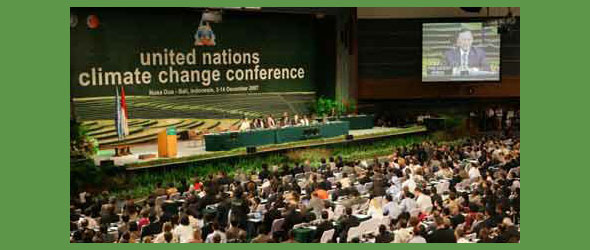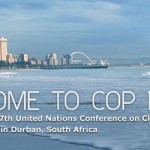
Pretoria – Representatives from the 32 countries in the United Nations Framework Convention on Climate Change (UNFCCC) negotiating blocs have expressed determination to build on the strong momentum of the Durban UN climate talks.
The representatives, who met in Bonn, Germany, this weekend, looked at what needed to be done to ensure that key decisions that emerged from the Durban conference were effectively implemented. They also made a commitment to intensify the curbing of greenhouse gas emissions and adapt to the inevitable impacts of climate change.
The 17th Conference of the Parties (COP17), which took place in November/December 2011 in Durban, delivered a comprehensive package of decisions that advances the global effort to address climate change.
One of the central outcomes of the meeting in South Africa was to pave the way for a legally binding agreement under the UN Climate Convention applicable to all Parties, to be completed by 2015 and to come into effect from 2020.
Speaking at the two-day Bonn meeting, International Relations and Cooperation Minister and President of the COP17/CMP7, Maite Nkoana-Mashabane, said the Durban conference resulted in one of the most encompassing and furthest reaching outcomes in the history of the climate change negotiations.
She reiterated that equity needed to be a central component of the future climate change regime.
“Let me also remind you that as we build towards the future, we must remain seized with implementing the agreements that have been made on the Green Climate Fund, Finance, Adaptation, Technology and Capacity Building. The key focus area must still remain: implementation, implementation and implementation now.”
Nkoana-Mashabane said political guidance was needed in several areas to make progress this year. This, she pointed out, included the amending the Kyoto Protocol in Doha at the end of the year so that it can continue at the beginning of 2013.
She said there was a need to clarify emission reduction pledges and accounting arrangements outside of the Kyoto Protocol for the period up to 2020.
This would then lead to the completion of the final steps to operationalize the adaptation and technology institutions to help enhance developing country action.
The other step, she told the participants, would be to advance on long-term climate finance; and finally defining the path for a new global climate change agreement.
UNFCCC Executive Secretary Christiana Figueres, who addressed the informal meeting, also stressed that governments needed to act urgently, decisively and tangibly to reduce emissions.
Noting that this was economically feasible and technically attainable, Nkoana-Mashabane said the success would, however, depended on ambitious reduction efforts in industrialised countries, and on a sufficient level of ambition to support action by developing countries.
At COP17, governments noted with “grave concern” the significant gap between countries’ current pledges to curb emissions and what was required to limit the increase of global average temperatures to at the most, 2 degrees Celsius.
Because of this, they agreed to undertake a work plan to close the gap between what had already been pledged and what was required to meet this goal.
The launch of the new negotiations to shape the new global climate change agreement and first discussions on how to raise ambition will take place at the UN Climate Change Conference in Bonn 14 – 25 May, which is designed to prepare decisions for adoption at the UN Climate Change Conference in Qatar 26 November – 7 December. – BuaNews




Leave a Reply